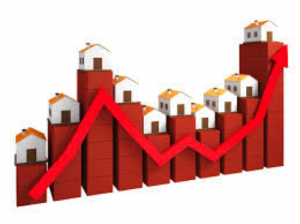When’s the Best Time to Buy a House?
For most Australian’s, purchasing a home is one of the biggest investments they’ll make. Buying a home is a major commitment because you might be paying for your home for around 30 years if you take out a typical mortgage loan. Plus, once you’ve purchased a house, selling can be time-consuming and costly. That’s why it’s so important to be smart about the home-buying process. So when is the Best Time to Buy a House?
One of the key things potential home buyers need to decide is when it’s the right time to buy a home. You can try to time the real estate market or buy when interest rates are low, or you can buy at certain times of year when you’re more likely to get a favourable deal or find the widest selection of homes. Ultimately, though, you’ll also need to make sure that you’re buying at the right time for you, which means you need to take your personal situation into account as well.
If you’re not sure whether you’re ready to become a home buyer, or if you’re interested in exploring what time of the year is the most advantageous time to buy a home, we have the answers.
Timing the real estate market for the best time to buy a house
First things first: The best time to buy a home is when housing prices are low. When prices are low and there are fewer buyers than sellers, the market is considered a buyer’s market. Buyers can get homes for lower prices and can often demand more concessions from homeowners eager to sell. By contrast, in a seller’s market, home buyers may become involved in a bidding war as homeowners consider multiple offers.
Unfortunately, trying to time the real estate market is difficult, even for professional real estate investors. If you’re hoping to try and buy when prices have fallen, here are some key factors to consider:
- Pricing trends in your area:Compare historical sales to what homes are selling for today. If home prices are significantly higher, your market may be in a bubble.
- The months of supply: Months of supply is the real estate term used to describe the inventory of homes for sale. It’s a metric that looks at how much time it would take to sell all houses currently for sale based on current demand if no new homes came onto the market. You can also obtain this information from Redfin. In a balanced real estate market, there’s generally around a six-month supply of housing. If the supply is lower, bidding wars are more likely to occur.
- The time it takes for homes to sell: If houses sit on the market for a long time, it’s likely a buyer’s market. But if homes are selling very quickly, it’s a seller’s market and you can expect to pay more for a home. Redfin provides details on the days on market for sold homes.
- New construction: When new construction lags, this keeps housing in short supply and puts upward pressure on prices.
- How housing prices compare to income and employment: The housing market is overvalued in your area if prices are high in relation to the income of local residents. This isn’t a sustainable situation, so prices are likely to fall.
Even with a careful assessment of market conditions, it’s challenging to predict what home prices will do. Still, if prices are very high in your area especially relative to local incomes this could be a sign of a housing bubble. In that case, it may be worth waiting so you don’t overpay for a home that might quickly fall in value if the bubble bursts.
Choosing the right time of year
Home prices not only vary over time, but they can also vary over the course of the year.
Supply and demand are big reasons why house prices change with the seasons. Summer has proved to be the most popular time to move and is a popular time for sellers to put their home on the market. While you’ll likely see more inventory in the summer, it’s the worst time to buy if your goal is to get the best deal because prices rise when demand increases.
Price increases in the summer can be dramatic. One 2009 study found prices are between .86% and 3.75% higher on average during the summer months than the winter months. A 2013 study using data from 138 different statistical areas also saw pricing variation from month to month, with prices at their highest in June and July.
While this data suggests you should buy during the winter months, a lower supply of housing may mean it’s more difficult to find your ideal home. In fact, one reason housing prices may be lower in winter is that buyers aren’t able to find homes that match their preferences as closely with fewer houses on the market, so they aren’t willing to pay as much of a premium.
If you can find a home you like in winter and pay less for it, this is a smart financial and personal choice. But if you aren’t able to find a home that’s a good fit, you’ll need to decide whether to settle for what’s available or wait until inventory expands as the warmer months arrive.
For more information about the best time to buy a house visit our other pages:



